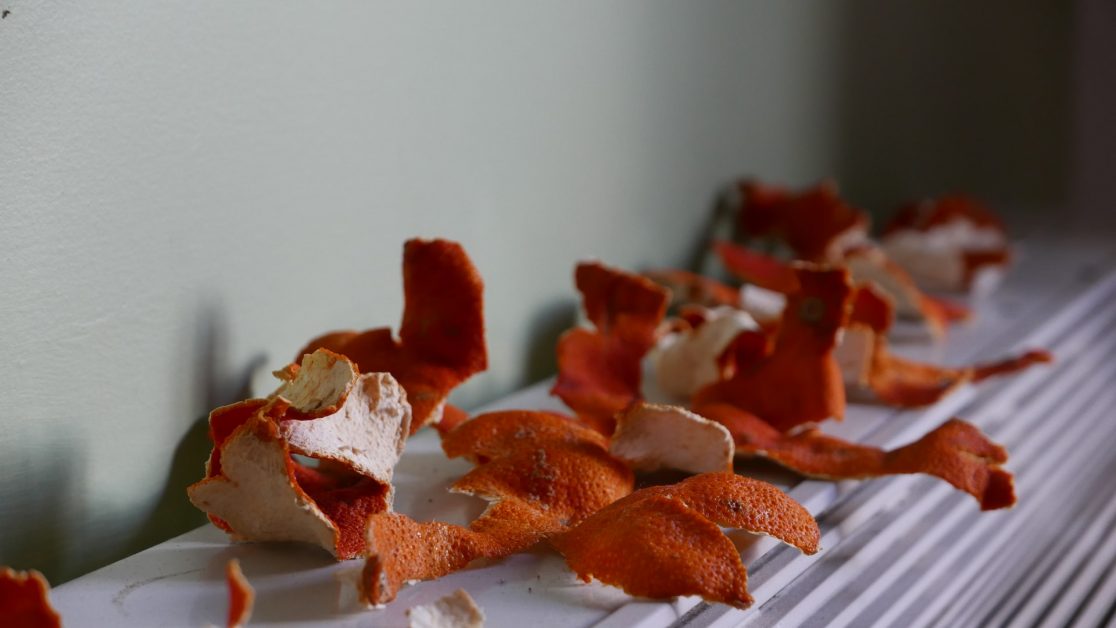Oranges are widely eaten throughout the world, but what happens to the orange peel waste that we don’t eat?
Are orange peels biodegradable and is it safe to throw them away in the street? We find out in this article.
What Are Orange Peels?
Orange peel is the thick outer layer (pericarp) that contains the orange fruit within. This protective layer grows with an orange and isn’t consumed by humans.
Is Orange Peel Biodegradable?
Yes, orange peel is biodegradable and will break down naturally over time.
Orange peel usually takes around 6 months to completely biodegrade but this will vary depending on environmental conditions. Orange peel discarded on a dry street with little rain will take much longer to decompose for example.
Orange peel contains a natural insecticide which deters insects from eating it. This further slows the rate of biodegradation.
Is Orange Peel Compostable?
Yes, orange peel can safely be put into a composter or compost heap.
Be sure to cut the orange peel into small pieces to help it biodegrade faster.
Is Orange Peel Litter Ok?
No. Orange peel should always be discarded into a suitable bin once peeled.
Orange peel waste is still litter so should not be thrown into the street or onto the ground after eating an orange.
Is Orange Peel Eco Friendly?
Yes, as an organic material, orange peel can be considered environmentally friendly.
Fruit frequently falls from trees and is consumed by animals and other forms of wildlife. This is a natural process and causes no harm to the environment.
Conclusion
Orange peel is biodegradable and is great for composting.
Although non-toxic, orange peel should never been thrown on the ground as it is still classed as litter.
